‘Our vaccine can beat Covid’, says AstraZeneca’s Pascal Soriot
Pascal Soriot, AstraZeneca’s boss, reveals the vaccine with Oxford University provides ‘100 per cent protection’ against severe Covid requiring hospitalisation.
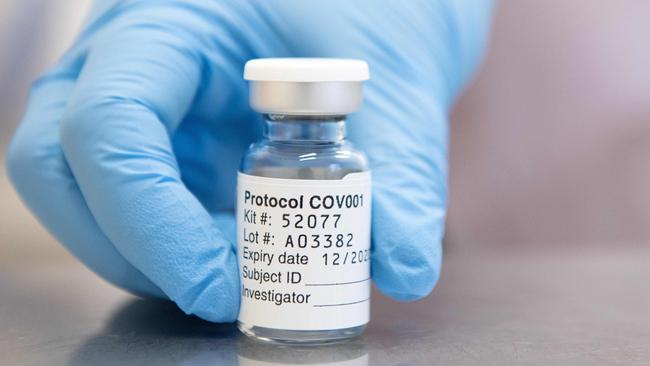
Pascal Soriot has had enough of critics who snipe from the sidelines. “I’m a player, I’m not a watcher or a commentator,” says the chief executive of Anglo-Swedish pharma AstraZeneca with a flash of annoyance.
If the Frenchman is feeling sore about those “armchair quarterbacks”, it is because Astra has been in the firing line over the past few months: first about confusion over the data from a vaccine for COVID-19 that the Cambridge, UK-based drug giant is developing with Oxford University, and then over its decision to launch a $US39bn ($51bn) deal to buy Alexion, an US company that specialises in treatments for rare diseases.
It is for this reason he will not be drawn on the UK government’s response to the pandemic. “So many people have opinions on what we do,” he says. “The reality is, until you are in charge, you really don’t know. Things are always complicated.”
Soriot is speaking by video from his home in Sydney where he is enjoying Christmas with his family — after two weeks spent in a hotel “jail” under a government-mandated quarantine. From here he also hopes to celebrate approval of Astra’s COVID-19 vaccine; champagne is stashed in the fridge.
As one new variant of the virus rips across Europe, with cases in the UK rising to 40,000 a day last week, and another emerges in South Africa, the world is holding its breath that further help is on its way in the form of Soriot’s scientists. Astra’s vaccine, which is cheaper and easier to transport than that of rivals, could be the key to unlocking a return to normality early in 2021. The UK has 100 million jabs on order and is awaiting the green light from UK medicines regulator the MHRA.
(The Australian government has 53.8 million doses of Astra’s vaccine on order and, pending approval from the Therapeutic Goods Administration, it will be manufactured locally by drug major CSL, of which Soriot joined the board in August.)
Doses are already being churned out in their millions. Notably, unlike the vaccines from Pfizer and Moderna, it will be delivered at cost price during the course of the pandemic. Low and middle-income countries will receive doses at cost in perpetuity.
The 61-year-old Parisian has led the drug-maker for eight years, turning what was then an industry laggard with few novel medicines in the pipeline into one of the world’s leading innovators. Its success in laboratories has been felt on the London Stock Exchange: it is now flirting with the top of the FTSE 100.
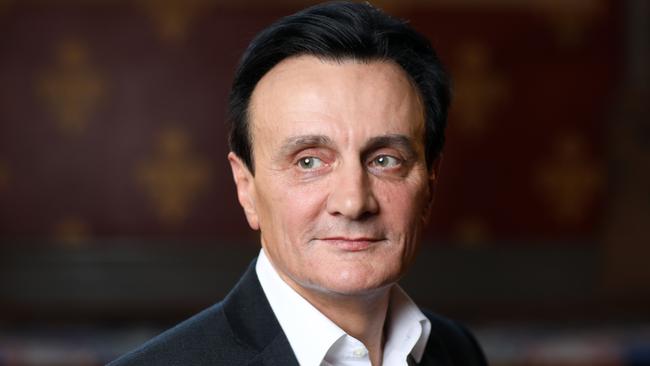
It is 9pm Sydney time when we speak, but Soriot, who is trim, with a crown of dark hair, still has several hours of meetings ahead of him. He has adopted a disjointed routine — up early for the US, a nap in the afternoon and then dialling in to Europe in the evening — to cope with the time difference. Although calm and polished, he looks tired; the past year has “taken its toll”. He has spent much of the year separated from his family, working in either Switzerland, the UK or the US, often with just his cat, Daisy, for company. “I can’t remember in my entire career working as hard as 2020,” he says.
Soriot never thought he would see global turmoil like this in his working life. “It’s the first time in the history of the world we prioritise health at a massive economic cost in the long run,” he says.
When we spoke, Britain was being shut off from the rest of Europe as countries enforced travel bans and scientists worked to understand the severity of the new strain. Soriot offers some reassurance. “So far, we think the vaccine should remain effective,” he says. “But we can’t be sure, so we’re going to test that.”
At the same time, Astra and Oxford are working on new versions of the vaccine; he hopes these will not be needed, “but you have to get prepared”. Soriot mentions the South African variant — only identified in the past few days but equally as concerning as the new British strain.
The vaccine being developed by Astra and Oxford will not just help the UK climb out of crisis, it will also be vital for less well-off countries. Unlike the Pfizer/BioNTech vaccine, which has been approved but must be transported at extremely low temperatures, Oxford’s vaccine can be stored in regular fridges. It is also cheap, at $US3-$US5 a jab versus Pfizer’s $US20.
Astra announced its partnership with Oxford in April. Louise Richardson, vice-chancellor of the university, said it was important to find a company willing to “see the bigger picture and do good with the vaccine, and to pass up the opportunity to profiteer from the pandemic”.
“We did not want this to just be a vaccine for the wealthy world,” she added. “In Pascal, we found someone willing to see the bigger picture.”
If approval arrives in the coming days, it will cap a year in which Astra and Soriot have been in the spotlight like never before. At times, Soriot was on the phone to suppliers “begging” them for essentials, such as the filters needed in vaccine manufacture. “There were shortages of all sorts of things,” he explains.
This year has also been bumpy on the public relations front. In November, jubilation over the announcement that the vaccine was a success was quickly eclipsed by questions over the design of the trial and how effective the jab really was. The most optimistic assessment of 90 per cent effectiveness came from a relatively small group of 2741 volunteers accidentally given a half dose of the vaccine, followed by a full-dose booster a month later. A larger group of 9000 testers who got two full doses showed an efficacy of 62 per cent.
Soriot admits he was “surprised” at the initial findings. “We would have preferred a simpler set of results, but overall we thought these are positive — they meet the criteria established by regulators around the world.” On top of that, he adds, the vaccine provides “100 per cent protection” against severe disease needing hospitalisation.
So he was unprepared for the wave of criticism that followed. Astra was accused of a lack of transparency, and its shares fell 3.8 per cent. “We assumed people would be a bit disappointed, that’s for sure,” says Soriot. “But we didn’t expect that storm.”
He is convinced now that subsequent data from the trial will show Astra has achieved an efficacy equal to Pfizer/BioNTech at 95 per cent and Moderna at 94.5 per cent. “We think we have figured out the winning formula and how to get efficacy that, after two doses, is up there with everybody else,” he says.
“I can’t tell you more because we will publish at some point.”
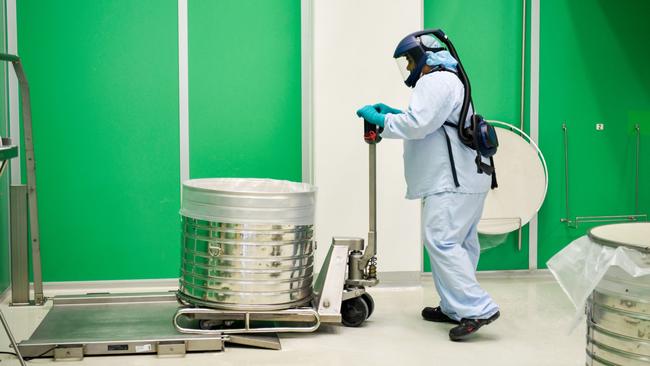
Soriot’s upbringing in a rough suburb of Paris, where street fights were common, prepared him well for the rough and tumble of life as a FTSE chief executive. After leaving school at 16, he trained as a vet and supported his younger brothers after their father, a tax collector, died of a heart attack. Once his mother got a job, he was able to continue his education.
An MBA at HEC, the Paris business school, followed, before a job as financial controller at Roussel Uclaf. He then moved to Australia, where his children and grandson still live. A move to Aventis, the French-German drug-maker that merged with France’s Sanofi, was followed by a job at Roche, which sent him to California to integrate its acquisition of Genentech.
At Astra, he was faced with the task of rebuilding a business that had few promising new drugs in the pipeline. Notable successes since include the launch of cancer drugs Tagrisso and Imfinzi.
Since rejecting an aggressive £55-a-share offer from Pfizer in 2014, Astra has risen 31 per cent to £72. It is now worth £95bn ($167bn), making it one of the most valuable companies in the FTSE 100, and reported pre-tax profits of $US1.5bn on sales of $US24.4bn last year. Earlier this month, prey became predator with the Alexion acquisition.
Astra’s shares have fallen about 10 per cent since the deal was announced, which Soriot attributes to hedge fund bets: “Analysts who tell you it’s a bad sign are trying to tell you a story.” Alexion reported sales of nearly $US5bn last year, and analysts at Jefferies suggested the motivation for the deal was “bulking up Astra and boosting cashflows” to boost its dividend.
Soriot points towards an increasing appetite in countries such as China to pay for rare-disease drugs, which can fetch a higher price: “We also wanted to signal to people that we are able to increase the dividend, and this will definitely help us accelerate that.
“People will have different views about this vaccine, different views about Alexion, but we’ll just keep going,” he says. “When we have bought Alexion, we have a good chance of becoming the most valuable company on the London Stock Exchange for a long time.”
Soriot’s reign at Astra has been regularly punctuated by rumours of his exit, first to Israeli drug-maker Teva in 2017, and again a couple of years later. He gives a knowing half-laugh when asked when he will move back to Australia to be with his family — it’s a question he is used to answering. “I would not have engaged in a deal like this acquisition if I didn’t have a plan to see it through and well integrated into Astra,” he says. “I’m not done.”


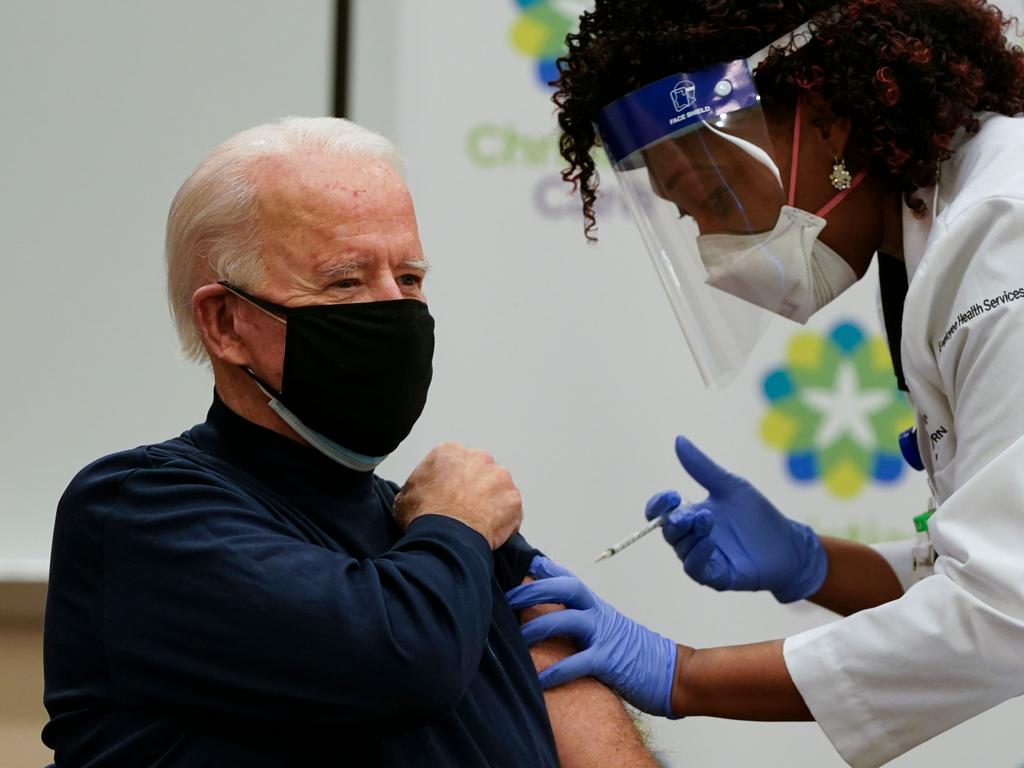
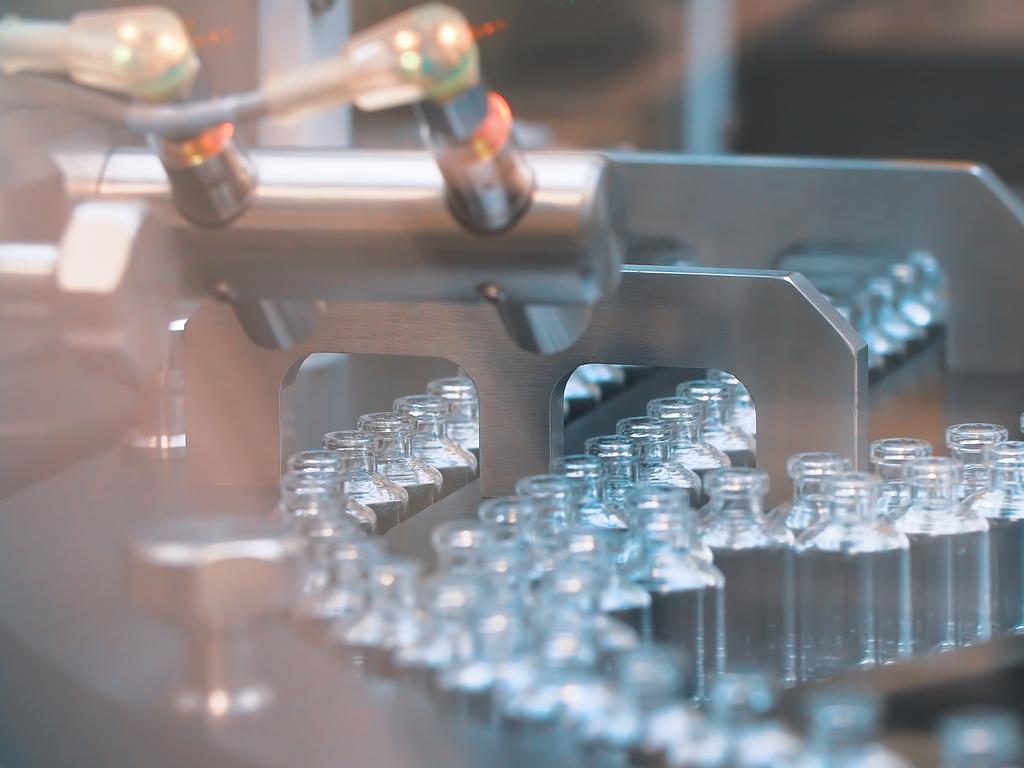
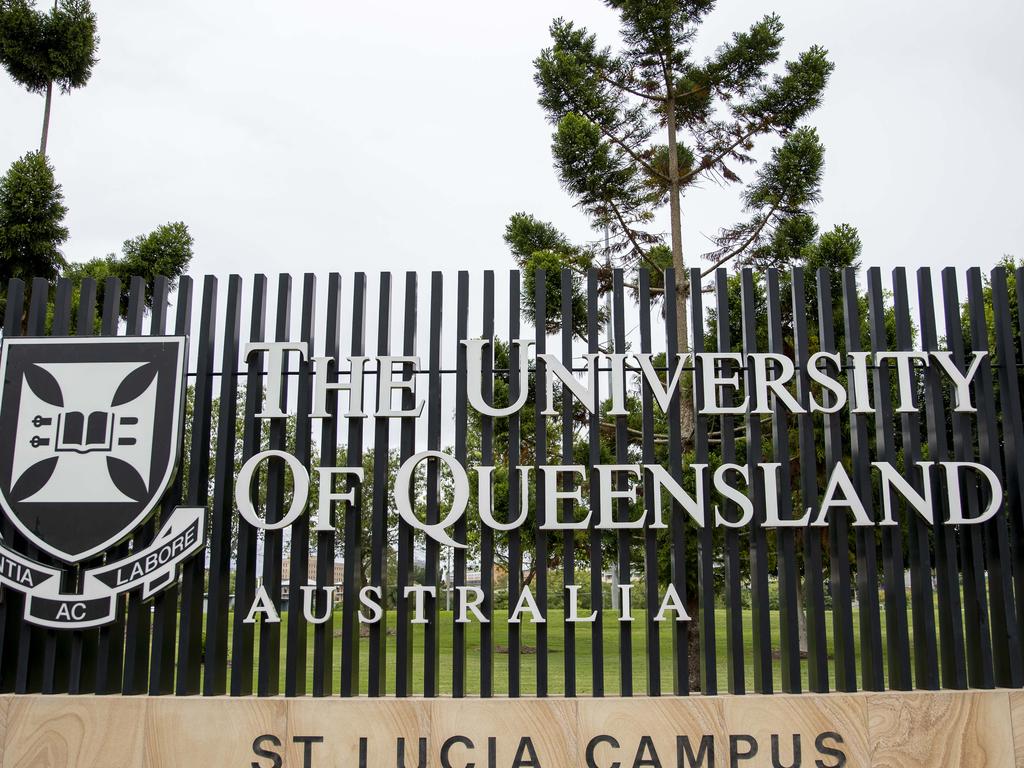


To join the conversation, please log in. Don't have an account? Register
Join the conversation, you are commenting as Logout